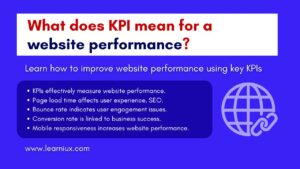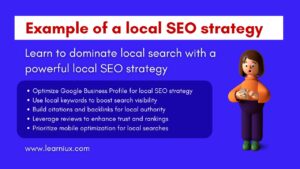In today’s digital age, small businesses face many challenges in standing out in a crowded marketplace. As consumers increasingly turn to search engines like Google to find products and services, the question arises as to whether SEO marketing services are right for small businesses. Search engine optimization, or SEO, is a strategy that helps businesses improve their visibility on search engines to drive organic traffic to their websites. The idea of investing in SEO can seem daunting to small businesses with limited budgets and resources. However, with the right approach, SEO can be a powerful tool to help small businesses compete with big players, attract local customers, and build a sustainable online presence. This article explores the potential of SEO marketing for small businesses, its benefits, challenges, and practical ways to implement it effectively.
SEO marketing involves optimizing a website to rank high on search engine results pages. It involves a number of factors, such as keyword research that identifies the terms that potential customers use when searching online. On-page optimization focuses on improving elements such as content meta tags and website structure, while off-page optimization involves building high-quality backlinks from other reputable websites. Content creation plays a central role in SEO because it provides value to users and demonstrates relevance to search engines. SEO provides a way for small businesses to reach their target audience without relying heavily on paid advertising, which can be expensive and less sustainable.
The importance of digital visibility for small businesses cannot be overstated. Most consumers now start their shopping journey online even when looking for local services. For example, a customer looking for a nearby coffee shop or plumber is likely to use Google to find options. Studies show that over 80 percent of consumers research online before making a purchasing decision. For small businesses, this means that having a strong online presence is crucial to attracting these potential customers. Unlike large corporations with large marketing budgets, small businesses often struggle to gain visibility. If small players target the right keywords and optimize effectively, SEO levels the playing field by allowing them to rank alongside big brands.
The biggest advantage of SEO for small businesses is its cost-effectiveness. Traditional advertising methods like print ads or TV commercials can be prohibitively expensive. SEO, in contrast, focuses on organic growth, which means attracting visitors without paying for every click or impression. There may be upfront costs, such as hiring an SEO professional or investing in tools, but the long-term return on investment is greater than other marketing channels. For example, a well-optimized website can continue to attract traffic for months or years at minimal cost. This makes SEO an attractive option for small businesses looking to maximize their marketing budget.
Another key advantage is the ability to target local customers. Local SEO is especially powerful for businesses that rely on nearby clients, such as restaurants, retail stores, or service providers. Small businesses can attract customers who are ready to buy by optimizing for location-based keywords like best bakery in Mumbai or affordable plumber near me. Tools like Google Business Profile allow businesses to appear in local search results and on Google Maps, making it easier for customers to find them. For example, a small boutique in the city can use local SEO to increase local traffic and ensure that their business appears when someone searches for nearby clothing stores.
SEO also provides long-term results. Unlike paid advertising, which stops generating traffic after the budget runs out, SEO builds a foundation for sustainable growth. A well-optimized website can maintain its rankings over time, especially if the business continues to create high-quality content and acquire reputable backlinks. This longevity makes SEO a smart investment for small businesses that want to establish an ongoing online presence. Additionally, appearing on the first page of search results increases a business’s credibility. Customers trust businesses that rank highly on Google because it signals authority and trustworthiness.
Despite its benefits, SEO is not without its challenges for small businesses. Limited budgets can make it difficult to hire experienced SEO professionals or invest in premium tools. Time is another obstacle, as SEOs require constant effort to research keywords and create content, and monitor performance. Small business owners often wear many hats and may not have the time to dedicate to SEO. Additionally, search engine algorithms are constantly evolving, requiring businesses to stay up-to-date on best practices. For example, Google’s algorithm updates can change how websites are ranked, meaning that strategies that worked a year ago may no longer be effective. These challenges may seem overwhelming, but with the right approach, they are not insurmountable.
Small businesses can start by focusing on local SEO to boost SEO. Claiming and optimizing a Google Business Profile is a simple but effective step. This includes adding accurate business information like address, phone number, and business hours, as well as encouraging customers to leave positive reviews. Using location-specific keywords in website content and meta tags can also increase local visibility. For example, a small gym might optimize for terms like fitness classes in Delhi to attract nearby customers. These strategies are often low-cost and can yield significant results for businesses with a local focus.
Choosing the right keywords is another important step. Small businesses should prioritize niche, low-competition keywords that match their products or services. For example, instead of targeting a broad term like shoes, a small retailer could focus on handmade leather shoes in Bangalore. Affordable options like Google Keyword Planner or Ubersuggest can help identify keywords with decent search volume but low competition. By targeting these specific terms, small businesses can rank higher without having to compete with larger corporations with bigger budgets.
Investing in affordable SEO tools can also make a big difference. Tools like Yoast SEO for WordPress or SEMrush’s Basic plan provide guidance for optimizing content and tracking performance. For businesses with limited technical expertise, these tools make it easy to do tasks like analyzing website health or identifying keyword opportunities. Alternatively, small businesses can consider outsourcing SEO to freelancers or agencies that specialize in working with smaller clients. While this involves upfront costs, it can save time and yield better results than a trial-and-error approach.
Content creation is at the heart of any successful SEO strategy. Small businesses should focus on creating high-quality, customer-centric content that meets the needs of their audience. For example, a local bakery could publish blog posts on topics like how to choose the perfect wedding cake or the benefits of gluten-free desserts. These posts not only drive organic traffic but also position the business as an expert in its field. The content should be easy to read and optimized with relevant keywords. Including visuals like images or videos can further enhance the user experience and keep visitors on the site longer, signaling to search engines that the content is valuable.
Real-world examples demonstrate the power of SEO for small businesses. Consider a local coffee shop that optimized its website for keywords like best coffee in Pune. By adding customer reviews and publishing blog posts about coffee-making tips, the shop saw a 40 percent increase in foot traffic in six months. Similarly, an online handmade jewelry store that targeted specific keywords like eco-friendly necklaces increased its sales by landing on the first page of Google for those terms. These examples show how small businesses can achieve measurable results with a focused SEO strategy, even with limited resources.
Avoiding common SEO mistakes is key to success. One common mistake is keyword stuffing, which involves overusing keywords in a way that makes the content feel unnatural. This not only hurts the user experience but can also lead to penalties from search engines. Another mistake is neglecting mobile optimization. A website that is being browsed by more people on smartphones will rank lower because it is not mobile-friendly and will frustrate users. Small businesses should also avoid ignoring analytics. Tools like Google Analytics provide businesses with insight into what is working and what is not, allowing them to improve their strategies. By avoiding these pitfalls, small businesses can increase the effectiveness of their SEO efforts.
Deciding when to invest in professional SEO services depends on a number of factors. If a small business has the time and willingness to learn basic SEO techniques, they can start with DIY efforts using free or low-cost tools. However, hiring experts may be necessary for more competitive industries or complex campaigns. For example, a business in a crowded market such as e-commerce can benefit from professional guidance to stand out. When choosing an SEO provider, small businesses should look for agencies that have experience working with similar businesses and have a track record of measurable results. It is also important to set realistic expectations because SEO is a long-term strategy that typically takes three to six months to show significant results.
SEO marketing isn’t just for big corporations with deep pockets. Small businesses can use SEO to attract customers, build credibility, and drive sustainable growth. By focusing on specific keywords that local SEO targets and creating valuable content, small businesses can overcome budget and time constraints to achieve meaningful results. Starting a small business means taking consistent action and monitoring progress over time. This is a great first step for businesses that are hesitant to assess their current online presence. A simple audit of their website and Google Business Profile can reveal opportunities for improvement.
Small businesses should include primary keywords to ensure that the article itself is SEO friendly, such as in the title, first paragraph, and naturally throughout the content. Are there SEO marketing services suitable for small businesses? Secondary keywords like local SEO and cost-effective marketing can also be woven in to increase relevance. A compelling meta description that summarizes the value of the article can improve click-through rates. Short paragraphs, bullet points, and clear language increase readability, making content accessible to a wide audience. Including internal links to relevant pages on the website and external links to authoritative sources like Google’s SEO guidelines increases credibility. Finally, a strong call to action encourages readers to take the next step, whether it’s optimizing their website or consulting an SEO professional.
SEO marketing services are not only appropriate but often necessary for small businesses looking to thrive in the digital world. The ability to attract local customers makes SEO a worthwhile investment for achieving long-term growth and building trust. Challenges like limited resources and evolving algorithms can be overcome with strategic planning and the right tools. Small businesses that embrace SEO can open up new opportunities to connect with their audience and compete effectively. Whether it’s optimizing a Google Business Profile or publishing a blog post, taking the first step can lay the foundation for lasting success.





















































